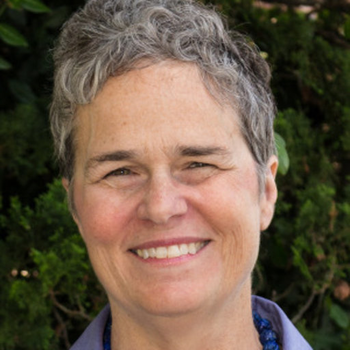In This Story

Carol Cleaveland is an associate professor in the Department of Social Work and has been a scholar at Mason since 2007. Cleaveland began exploring Latino immigration in 2004 utilizing ethnographic research methods and working with Mexican day laborers in Freehold, N.J., to understand how the day laborers negotiated police harassment and anti-immigrant ordinances. Since 2013, Cleaveland’s work has focused on Latinas from Central America and immigration-related trauma, including experiences in human smuggling. She was awarded study leave during the Spring 2023 semester to complete her work on two projects.
The first of Dr. Cleaveland’s study leave projects is the completion of a 400-page book, Private Violence: Latin American Women And The Struggle For Asylum submitted to New York University Press. The book is co-authored with Michele Waslin, interim director, Immigration History Research Center at the University of Minnesota, and is based on Cleaveland’s interviews with 46 women seeking asylum as well as ethnographic observations of asylum court hearings. Waslin is an immigration policy expert and she provided valuable insights into the history of immigration law as well as asylum policies that fluctuate frequently because of legal challenges and executive branch policy-making.
Cleaveland developed the concept of "compounded marginalization" (named by Waslin) to characterize the lived social space for asylum seekers. The term captures both the quasi-inclusion asylum seekers experience as they are spared deportation and may obtain a work permit, but whose existence is otherwise defined by a protracted legal battle to win relief from removal, as well as racialized conceptions of Latin American migrants as ‘illegal’ regardless of status. Another element of the concept includes histories of brutal trauma by gangs and/or domestic partners that forced women to seek asylum in the United States.
This summer, Cleaveland and Waslin’s book was reviewed by three of the nation’s most respected sociologists who study immigration: Cecilia Menjívar, Susan Coutin and Roberto Gonzales. The sociologists characterized the work as important and suggested only minor revisions.
In addition to completing the book, Cleaveland finished her manuscript from the COVID-19 seed money received from the College, “'I thought I was going to die there:' Socio-political contexts and the plight of undocumented Latinx in the COVID-19 pandemic,” which was published by Social Science & Medicine: Qualitative in February. Cleaveland invited Myeong Lee and Constance Gewa to lend their expertise and serve as co-authors. Lee and Cleaveland plan to seek funding from the Robert Woods Johnson Foundation based on the study’s findings.
Congratulations Cleaveland for a very productive study leave and we look forward to more great work ahead!
